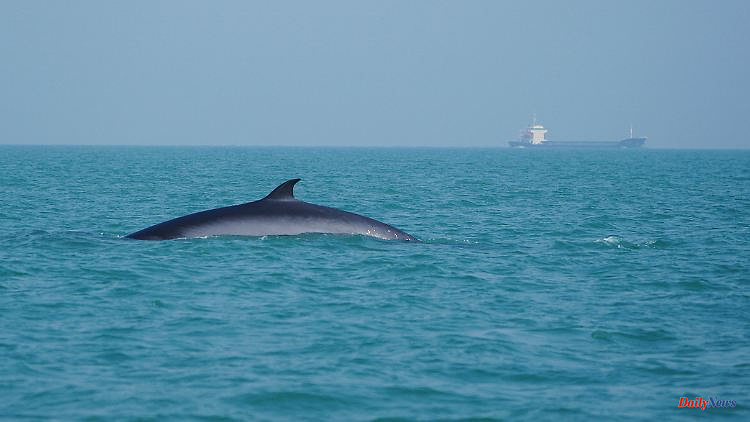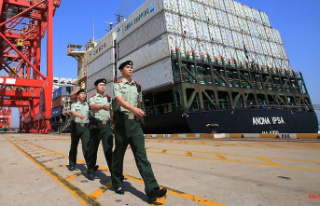The high seas, more than half of the world's oceans, have so far not been protected by any international agreements. After 15 years of negotiations, the UN member states agree on a corresponding agreement for the first time. Environmentalists celebrate a "historic day" and warn: The real work is just beginning.
After years of negotiations, the UN member states have agreed on the text for the first international high seas convention to protect the world's oceans. "The ship has reached shore," said UN Conference Chair Rena Lee at United Nations headquarters in New York to applause from delegates. Environmental activists spoke of a "historic day".
The content of the text was not initially published. However, Laura Meller from the environmental organization Greenpeace has already spoken of a "historic day for nature conservation". The agreement on the High Seas Agreement is "a sign that in a divided world, the protection of nature and people can triumph over geopolitics".
Praising the delegates, UN Secretary-General Antonio Guterres said the agreement was a "victory for multilateralism and for global efforts to reverse the destructive trends that threaten ocean health," a spokesman said. The UN member states had been struggling in vain for an agreement to protect biodiversity in the high seas for more than 15 years. A round of negotiations only ended in August without a result.
According to conference leader Lee, the text, which the delegates agreed on after two weeks of intensive discussions, can no longer be changed significantly. "There will be no more resumption or substantive discussions," Lee told negotiators. The agreement will be formalized once it has been reviewed by legal experts and translated into the six official languages of the United Nations, Lee said.
Around 60 percent of the world's oceans that do not fall under a country's exclusive economic zone because they are more than 370 kilometers from the nearest coast are referred to as the high seas. Currently, only about one percent of the high seas is protected by international agreements, with the entry into force of the High Seas Convention, the establishment of marine protected areas in international waters will be possible.
The agreement should also oblige the countries of the world to carry out environmental impact assessments for planned activities on the high seas. In particular, the distribution of possible profits from newly discovered maritime resources had led to considerable disputes in the last phase of the negotiations. Eventually, however, the delegates cleared this hurdle as well.
Developing countries that cannot afford the costly exploration of such resources had insisted that they would not be left out of the expected profits from trading in commodities that might be discovered in international waters. Environmental groups are pushing for better protection of the world's oceans in the face of threats from global warming, pollution and overfishing. The oceans produce half of the oxygen in the Earth's atmosphere and absorb a significant portion of the carbon dioxide emitted by human activities.
Marine expert Till Seidensticker from Greenpeace Germany said that "the real work will start now" with the signing of the agreement. The federal government must, together with other countries, "quickly push ahead with the implementation of genuine protected areas" that should be "free of industrial use" and "free of any human intervention".












